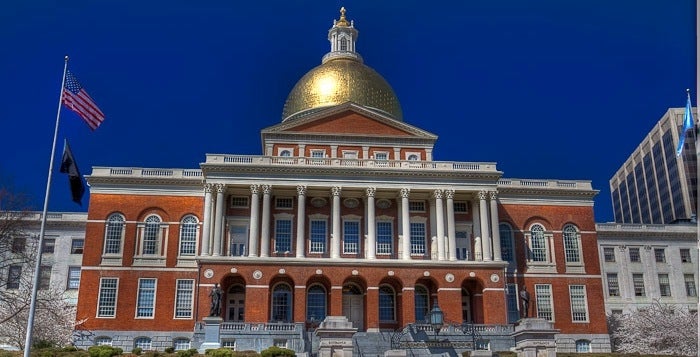Days before a law limiting the timeframe for foreclosed property owners to file a title challenge is set to go into effect, opponents have taken the first step in an effort to have the law suspended and potentially repealed.
The Massachusetts Alliance Against Predatory Lending filed a petition with Secretary of State William Galvin’s office last week seeking to have the law temporarily suspended and put on the ballot as a referendum, a power given to voters under the state constitution and featuring a multi-step process.
Alliance coordinator Grace Ross told the News Service 18 homeowners and activists from Worcester, Shrewsbury, Boston, Springfield, Lancaster, Leicester, Amherst, Cambridge and Medford, signed the petition, which they brought to Galvin’s office last Thursday.
“Even if it’s for a few months, it speaks to something profound about what it means to be a democracy,” Ross said of suspending the law.
The law they are seeking to repeal, titled An Act Clearing Titles to Foreclosed Properties, is scheduled to go into effect on Dec. 31. Ross and a spokesman for Galvin’s office disagree over whether that will still happen, or if the suspension is immediate.
The Massachusetts Constitution allows voters to request a suspension of and referendum on a recently passed law, a process that starts off with the filing of a petition signed by 10 voters.
The petitioners must then gather additional signatures to have the law put before voters at the next state election.
“It’s a constitutional provision that is rarely, if ever used,” Ross said. “It allows voters to suspend and eventually revoke the implementation of the law.”
Brian McNiff, a spokesman for Galvin, confirmed Monday afternoon the petition had been filed and is under review.
Ballot question guidelines published by Galvin’s office say that referendum petitioners must submit 43,167 signatures — 2 percent of the total vote cast for governor in the last state election — to suspend the law.
Asked if the law would take effect on Thursday, McNiff referred back to the signature requirement. “Once they file those, it would be suspended,” he said. “What they filed is being reviewed to make sure they have the information that is needed.”
The foreclosed properties law, signed by Gov. Charlie Baker on Nov. 25, is set to go into effect on Thursday.
Ross disagreed with the idea that the law would still take effect this week, arguing that the filing of the initial 10-signature petition launches the suspension.
She said the Dec. 31 start date should be invalid regardless of the petition, citing a provision of the constitution that says, “No law passed by the general court shall take effect earlier than ninety days after it has become a law, excepting laws declared to be emergency laws and laws which may not be made the subject of a referendum petition, as herein provided.”
The property titles law did not have an emergency preamble, language that puts a law into place as soon as it is signed. Instead, it contains a section setting Dec. 31, 2015 as the effective date, a component Ross described as “explicitly unconstitutional.”
“This is where things are going to get messy,” she said. “But this is OK. It’s because you’re not supposed to be in this territory. We’re off the edge of the world, with serpents and whatever. We’re not supposed to be in this situation at all.”
Aimed at providing some legal assurances to homeowners who have purchased homes in foreclosure, the new law limits property title challenges to either three years after a foreclosure affidavit was filed or one year after the law goes into effect, whichever is later.
The measure’s supporters have said that it will correct a situation in which new owners are left unable to refinance or sell their homes for lengthy periods during which the former owner can dispute the title. Opponents say the law strips recourse from people forced out of their homes in illegal foreclosures.
“Taking away the rights of the first victim isn’t the answer here,” said John Shumacher, who signed onto the petition and is fighting what he describes as an illegal foreclosure on his family home on the Lancaster/Clinton line. “If you send an ambulance to a two-car accident, you don’t run over the people in the first car to get to the second car. That’s what this bill does. It runs over the first victim again.”
Petitioners say the limited time period does not provide enough of a window to mount a title challenge.
“It takes longer than one year or three years to go through all of this,” said Mildred Collins, whose Worcester home was foreclosed on. “It’s very, very devastating when you think your house is gone, and then to have to go through this whole court process, it’s very tough on families.”
Sen. William Brownsberger, who helped reconcile differences between the House and Senate foreclosure bills as Senate chairman of the Judiciary Committee, has described the legislation as a way to protect people who purchase foreclosed properties.
Brownsberger said Monday that he did not recall where in the legislative process the Dec. 31 date was added, and that he knew of no reason the law would not take effect as planned.
“The law is changed,” he said. “There are those who will continue to challenge the intelligence of that, but it is what it is.”

